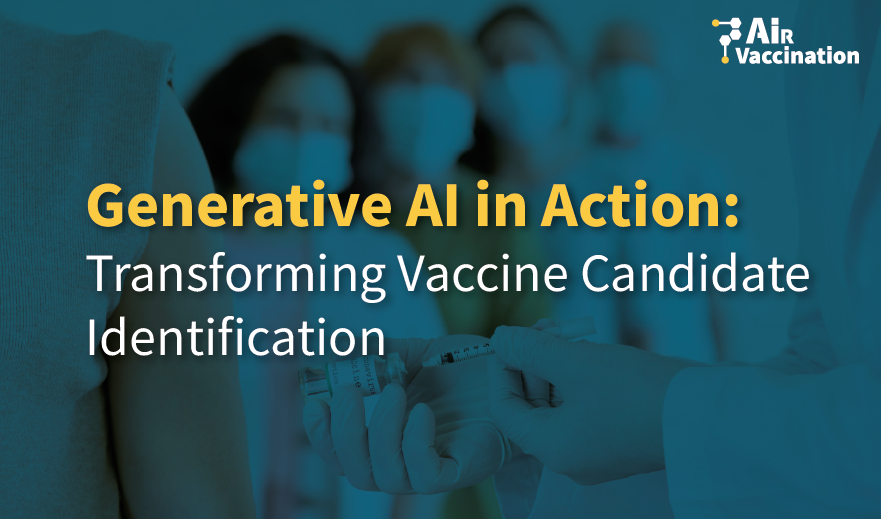Generative AI in Action: Transforming Vaccine Candidate Identification
Generative Artificial Intelligence is redefining the boundaries of biomedical research. In the context of vaccine development, it is not only about processing existing information — it is about creating new possibilities that would be almost impossible to explore manually.
The Vaccination project, led by the AIR Institute, is harnessing this power to accelerate the discovery of new vaccine candidates, bringing us closer to more effective and adaptable solutions.

From data-driven predictions to creative discovery
While traditional AI methods focus on analyzing data to predict outcomes, generative AI takes a step further: it can propose new antigen structures that have never been tested before. This “creative” approach allows scientists to:
- Identify hidden patterns in genomic and protein data.
- Generate new protein variants with potential to trigger strong immune responses.
- Anticipate viral mutations, offering vaccine designs that remain effective as pathogens evolve.
Real-world impact: speeding up discovery
One of the greatest challenges in vaccinology is the time required to identify viable candidates. Generative AI changes this dynamic by:
- Reducing timelines: thousands of antigen models can be simulated and filtered in days.
- Improving precision: selecting candidates with higher probability of success before moving to laboratory testing.
- Supporting rapid response: in future outbreaks, vaccines could be designed in record time.
This shift transforms vaccine research from a slow, reactive process into a faster, proactive strategy.
Toward sustainable and personalized vaccines
Generative AI also contributes to the design of sustainable vaccines — lowering costs and optimizing resources by reducing unnecessary laboratory experimentation.
Moreover, by integrating data on different populations and immune profiles, AI can help move toward personalized vaccination, tailoring immunization strategies to specific needs.
Building trust in innovation
As promising as generative AI is, transparency remains essential. At the AIR Institute, researchers are committed not only to advancing technology but also to ensuring that the models are explainable, reliable, and aligned with ethical principles.
This approach ensures that society can trust these new vaccines as safe, effective, and responsibly developed.